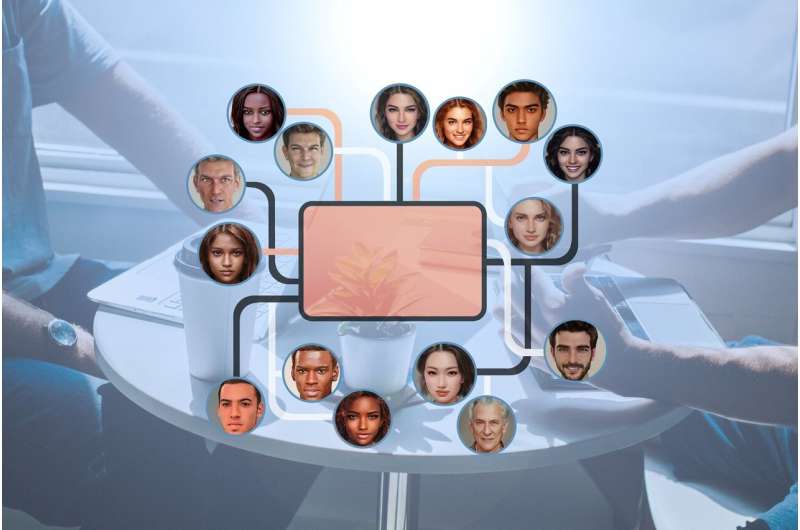This article has been reviewed according to Science X's editorial process and policies. Editors have highlighted the following attributes while ensuring the content's credibility:
fact-checked
trusted source
proofread
Unexpected outcomes: Digital nudges in online teamwork

The dramatic expansion of Internet communication tools has led to increases in temporary online groups that solve problems, provide services, or produce new knowledge. But many of these groups struggle to collaborate effectively.
In a new study, researchers tested how online "nudges" created by algorithms can enhance teams' collective intelligence, or team members' ability to work collaboratively. They found that the effectiveness of the nudges was mixed.
The study was conducted by researchers at Carnegie Mellon University, the University of Illinois Urbana-Champaign (UIUC), the University of California Santa Barbara, and Bar Ilan University. It is published in the journal MIS Quarterly.
"The explosion of new tools and modes of collaboration requires ongoing experimentation to find ways to support this kind of teamwork," explains Anita Williams Woolley, Professor of Organizational Behavior and Theory at the Tepper School of Business at Carnegie Mellon, who coauthored the study.
"This study was an initial 'proof of concept' investigation of how online algorithm-based facilitators can enhance collaboration in teams."
The use of temporary online groups to work together on tasks such as developing software or solving problems that require specialized knowledge has risen. But there are few established roles or norms for such work. One way to cue the norms that support collaboration may be by applying ideas from behavioral economics research on "nudges"—actions that encourage certain choices or behaviors without reducing individuals' autonomy.
To test whether bot-based nudges could shape individuals' teamwork behavior, the study recruited more than 500 workers from crowdsourcing marketplace Amazon Mechanical Turk and randomly assigned them to one of nearly 170 temporary online groups.
Each group had three or four members, most of whom were male, and participants' average age was 35. Each digital nudge was designed to spur one of three targeted collaborative processes (collaborator skill use, effective task strategy, or level of collective effort) proven to enhance collective intelligence. Each was tested in one of four experimental conditions, with a fifth no-nudge condition as a control group for comparison.
The study found that the nudge that prompted group members to discuss their skills and how to apply them to their joint work enhanced collective intelligence. However, another nudge, which prompted collaborators to discuss if or how to divide the work and to agree on what each contributor would do at the start of new tasks, had no effect on collaboration.
Furthermore, the other two nudges had negative effects. The nudge that primed collaborators to think about and discuss task assignments, identify gaps, and resolve conflicts, then check off completed work to update progress, resulted in a weaker task strategy and had an indirect negative effect on collective intelligence.
Surprisingly, the nudge that provided real-time feedback on each collaborator's relative contribution of effort backfired and had a significant negative effect on total level of effort and an indirect negative effect on collective intelligence after effort overall.
"Even though our study yielded a mix of results, our findings suggest a role for digital nudges, particularly those that use more sophisticated artificial social intelligence, to enhance collective intelligence," says Pranav Gupta, Assistant Professor of Business Administration at UIUC's Gies College of Business, who led the study.
"Our findings also serve as a cautionary tale: Even simple and well-intentioned digital tools can have unintended psychological effects and may cause more harm than benefit to collaboration."
More information: Gupta. P et al, Using Digital Nudges to Enhance Collective Intelligence in Online Collaboration: Insights from Unexpected Outcomes. MIS Quarterly (2024) misq.umn.edu/using-digital-nud … pected-outcomes.html




















